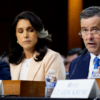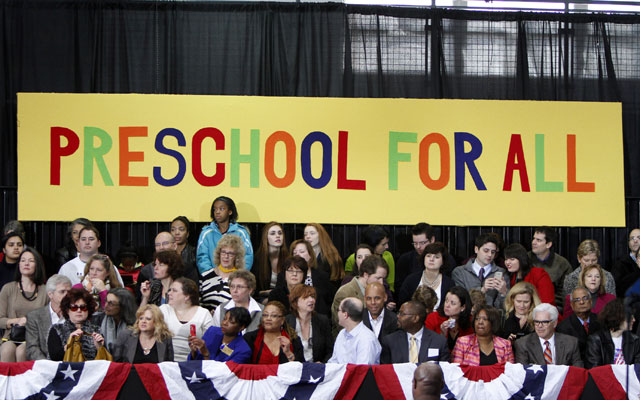You’d think that the Obamacare rollout debacle would give one pause before asking the federal government to start running another mega-program. Yet Senator Tom Harkin (D., Iowa) and Representatives George Miller (D., Calif.) and Richard Hanna (R., N.Y.) are doing just that today. Accompanied by Hollywood actress Jennifer Garner, they are unveiling “a bipartisan proposal aimed at expanding high-quality early childhood education for children from birth to age 5.”
Here’s hoping the rest of Congress doesn’t wait until after passage to find out what’s in this multi-billion-dollar bill. Instead, lawmakers should take the time to acquaint themselves with the extensive body of academic literature on the educational—and other—effects of preschool programs.
The Daily Signal depends on the support of readers like you. Donate now
As researchers Patricia Apps, Silvia Mendolia, and Ian Walker diplomatically explain in the journal Economics of Education Review, there is “heterogeneity” in the findings. That is to say, the reviews are mixed.
Their own evaluation of British preschool programs found that preschool child care moderately improves cognitive outcomes, particularly for girls and disadvantaged children. However, the researchers also found no significant evidence “of improvement in psychological well-being, petty crime involvement, or on almost all health behaviours.”
The absence of an impact on crime and health should be of particular concern for U.S. policymakers familiar with the dubious $7 for $1 “return on investment” figure used by preschool advocates. President Obama used it his State of the Union appeal for universal preschool, asserting that “every dollar we invest in high-quality early-childhood education can save more than $7 later on.”
That figure comes from an extremely limited, nearly half-century-old study of the Perry Preschool Project. Following a group of only 58 preschool children, the study found that, compared to a control group, they were less likely to be incarcerated five or more times by the time they reached age 40. Those results, though oft-repeated, have never been replicated.
Subsequent studies have produced inconsistent findings. Some suggest that center-based care yields positive cognitive effects on preschool children. Others show preschooled children emerging with worse social behaviors and no effect on math or reading skills.
One of the more cautionary tales comes from Canada. Quebec implemented universal, government-subsidized child care in the 1990s. A rigorous evaluation by economists Michael Baker, Jonathan Gruber, and Kevin Milligan found that “child outcomes are worse for a variety of parent-reported measures, such as hyperactivity, inattention, aggressiveness, motor/social skills, child health status, and illness.” They also found that parenting practices and relationship quality deteriorated.
“These are subjective measures,” the authors note, “but the consistency of the results suggests that more access to child care is bad for these children (and, at least along some dimensions, for these parents).”
While the literature shows some beneficial effects for disadvantaged children, that’s not what’s being pursued by the Obama administration. It seeks universal preschool to complete a “cradle to career” government-education system.
Such a system is likely to mirror the existing government preschool option for disadvantaged children — the notoriously ineffective Head Start program. An evaluation of the $8 billion per year Head Start program by the Department of Health and Human Services found little to no impact on cognitive, social-emotional, health, or parenting practices of participants.
Yet some politicians remain uninterested in what the research shows. Representative Candice Miller (R., Mich.), for example, blithely asserts: “You don’t need some scientific study to tell you that this program, an early intervention, is absolutely critical to making sure that children can optimize their individual potential.”
Many politicians are more interested in what the polls say, rather than in what the research reveals. And, as Politico reports, Republicans are hearing analysis like that offered by Sara Mead, principal at Bellweather Education Partners, as reported in Politico: “The issue [universal Pre-K] draws female and Latino voters, groups the Republican party struggled with in the last presidential election.”
In the long run, however, good policy makes for good politics. Rather than create yet another doomed-to-fail government program, lawmakers should consider reforming or eliminating existing programs that have proved to be ineffective.
Washington should advance educational policy that expands individual freedom and options. And before drafting any bill, lawmakers should remember that parents are a child’s first educators and that a stable family provides the best foundation for a future academic—and social—success.
Originally appeared in the National Review Online






























